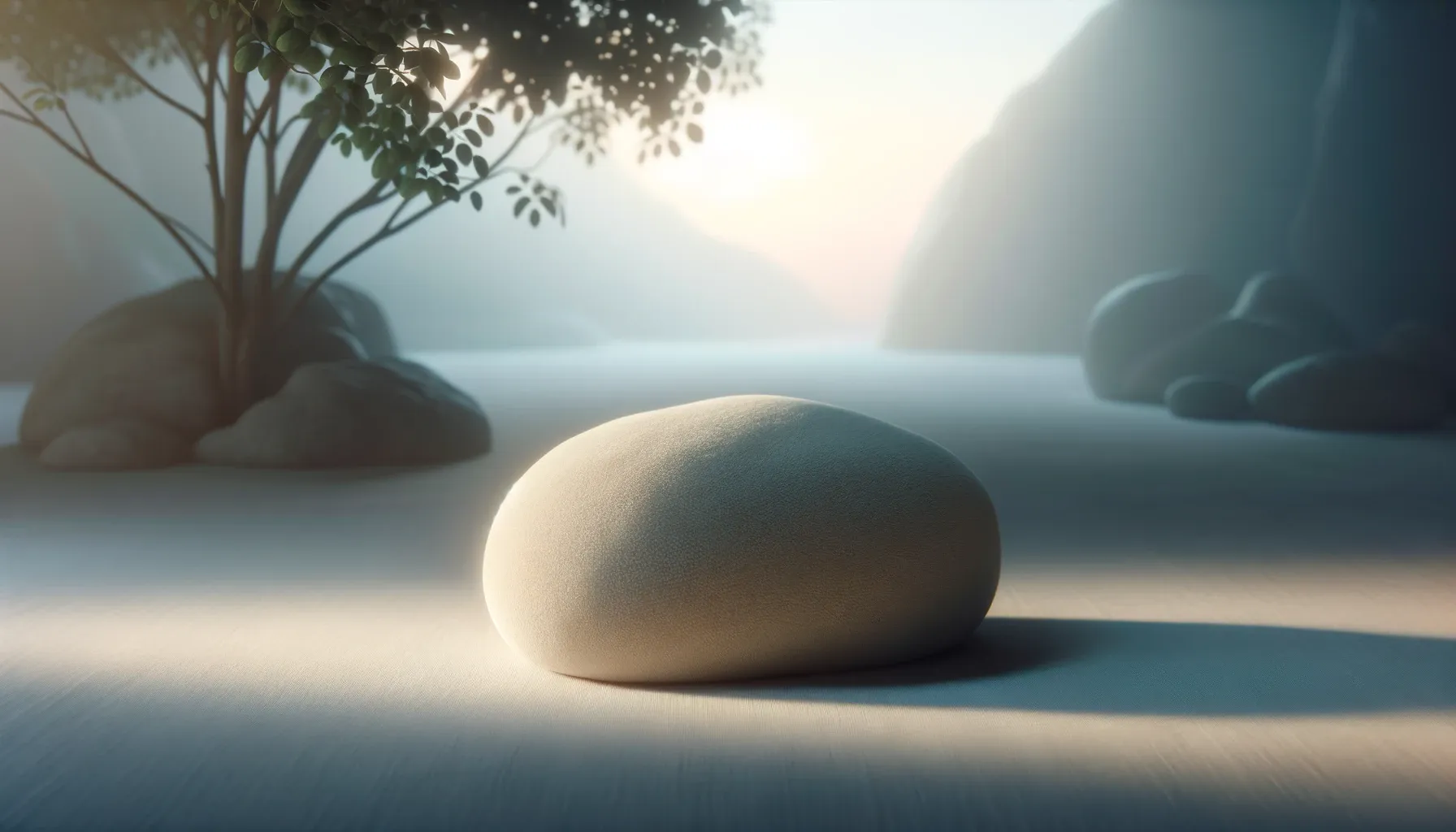Cultural Consumption: 2/5/24
Gliding into the work week all easy-like

Like a lot of tech-driven "solutions" for or "disruptions" to established business models, music streaming arrived with a lot of utopian promises that have turned out to be not only complete bullshit, but also shiny objects used to try and conceal the ways in which the advent of this new technology threatens to destroy the long-term viability of the financial ecosystem it was supposed to revolutionize. All of which is to say that while I talk a lot about streaming music here, and rely on embeds to bring you the songs I'm writing about, I harbor no illusions regarding Spotify et al. as saviors of anything other than the major labels' short-term profits. Anyone who cares about how music is made knows we're barreling toward a world in which "professional musician" is no longer really a career, and all the Band-Aids we try to slap on that wound — use Bandcamp or artists' websites! Buy physical product! Go to live shows! — can only do so much to stanch the bleeding.
There's a lot to talk about here, but I'm not going to get any deeper into it in this space at the moment; I mention it mainly as a means of opening a conversation about the pros and cons of various streaming platforms from a UI standpoint. I subscribe to a number of them, some by virtue of already being walled into a software/hardware garden to some degree (Apple, Amazon), some by virtue of longstanding habit (Spotify), and some simply because I do not want to watch commercials when I'm trying to dig up a video (YouTube). The main thing I really want is an algorithm that's going to go and find me great shit I haven't already heard, and I feel like all of them more or less suck at that; I've spent the last few years trying to teach Apple Music what I want, and it's still no better at feeding me than it was when I first subscribed. Where Spotify in particular really stands out, though, is with its vast selection of user-created playlists.
If you've used the service for any length of time, you're likely already familiar with what I'm talking about, but just in case, I will tell you that you can type just about any damn thing into the Spotify search bar and find a playlist that a random soul has cobbled together. Genres, instruments, emotions; they're all there. And unlike the drones who slap together "official" playlists that are 90 percent well-known songs, seven percent "deep cuts," and maybe two percent legitimate discoveries, these folks are serious listeners who are ready and willing to expand your horizons. I loathe what Spotify has done to artists' royalty statements. In a perfect world, using the service would mean someone other than the hugest global superstars are getting paid actual money. That is not the world we're in, however, and even if it's an infinitesimally small comfort to consider the weird sort of social network these playlists have created, it's a comfort nonetheless.
All of which is to say that when my dear pal Michael Parr tossed a playlist my way over the weekend, and I saw that it had been put together by a Spotify user, and that it was titled "The Wide World of Soft Rock," well, I couldn't say no. And given that this thing is nearly 300 songs long — about 19 and a half hours overall — I may have to continue not saying no for a little while after I finish this post. True to the user-generated vs. in-house split I was talking about a minute ago, this playlist is rich with gooey soft rock goodness, specifically the type that wasn't played to death on Top 40 stations 40 years ago and hasn't been further abused by AC program directors in the decades since. This is a style of music that I have a lot of history with (and one that will always have instant access to the most corduroy-pantsed, Izod-beshirted section of my '80s heart), and even I haven't heard a lot of this stuff. Certain soft rock acts among the under-platinum set make a number of repeat appearances (Marc Jordan! Bill LaBounty! Erik Tagg!), but considering its massive length, it's an admirably eclectic overview that will transport you back to the era of fern bars and Members Only jackets, only without subjecting you to the same damn songs you've already heard more times than you'll ever be able to count. I'll embed the playlist at the end of the post so you can hear it for yourself, if you like that kind of thing. (If you don't, I feel kind of bad for you.)
Watching: Slow Horses S3 E5, a.k.a. the penultimate episode of this excellent, too-brief season, in which our heroes race against time to thwart the seemingly unthwartable efforts of enemies from within as well as without. Like the rest of the season, this is some truly excellent shit, and it ends on a literally explosive note. I'm not looking forward to finishing Season 3 tomorrow, although I am looking forward to going from Slow Horses to the (allegedly) final season of Curb Your Enthusiasm.
I also watched The Greatest Night in Pop, the new, Netflix-distributed documentary about the writing and recording of "We Are the World." As I mentioned mere moments ago, I came of age in the '80s, so I vividly remember the fuss surrounding the USA for Africa project; as an avid fan of Billy Joel and Chicago, my 11-year-old self was all kinds of excited to see that both acts were part of the full-length album (Joel as a "We Are the World" performer; Chicago as a contributor to the LP).
Of course, "We Are the World" has become something of a punchline in the decades since it raised millions of dollars for Ethiopian famine relief and helped raise the tide of charity projects by well-meaning pop and rock stars; like any massive hit, it produced a backlash by the time its run at the top of the charts was done, one arguably amplified by its do-gooder status as well as the fact that it's a positively brutal earworm with less than scintillating lyrics. I myself have spent many years trying to avoid ever hearing it again, partly because I know I'll spend the rest of the day with the song on repeat in my brain and partly because, well, it's kind of corny.
Here's the thing, though: The Greatest Night in Pop does an absolutely outstanding job of not only distilling the story behind the making of the song, but underlining the why of its existence. It's very easy to imitate various vocalists' lines in the song, lampooning the extra muchness of massive pop stars doing what made them massive, one corny line at a time — and it's also very easy to forget that they were all there gratis, working all through the night (haha, Cyndi Lauper reference) in an earnest attempt to help make the world a better place for those less fortunate. I don't know, maybe you're made of sterner stuff than me, but I found the whole thing pretty moving, up to and including the part of the movie showing Al Jarreau leading the entire group in an impromptu rendition of "Day-O" to thank Harry Belanfonte for helping inspire the project.
I don't want to oversell it, nor do I want to give too much away. But I rarely use my Netflix subscription for anything anymore, just because so much of what they glurge out is algorithm-fueled dreck, and this was definitely not that. Here's the trailer!
Reading: I finished William Diehl's 27 and moved on to A Drive into the Gap by William Guilfoile, which is a sort of baseball memoir/tribute to the author's dad, heavily colored by said dad's descent into Alzheimer's. This is a book gifted to me by my pal Tim Ryan, who is a bigger baseball fan than I'll ever be (and also a bigger fan of my review of Tim McCarver's album than I'll ever be), but he also knows I was raised on a series of ballfields and I'm a huge sucker for stories about fathers and sons, so this is a slow pitch down the middle for yours truly. Very much enjoying it thus far.
